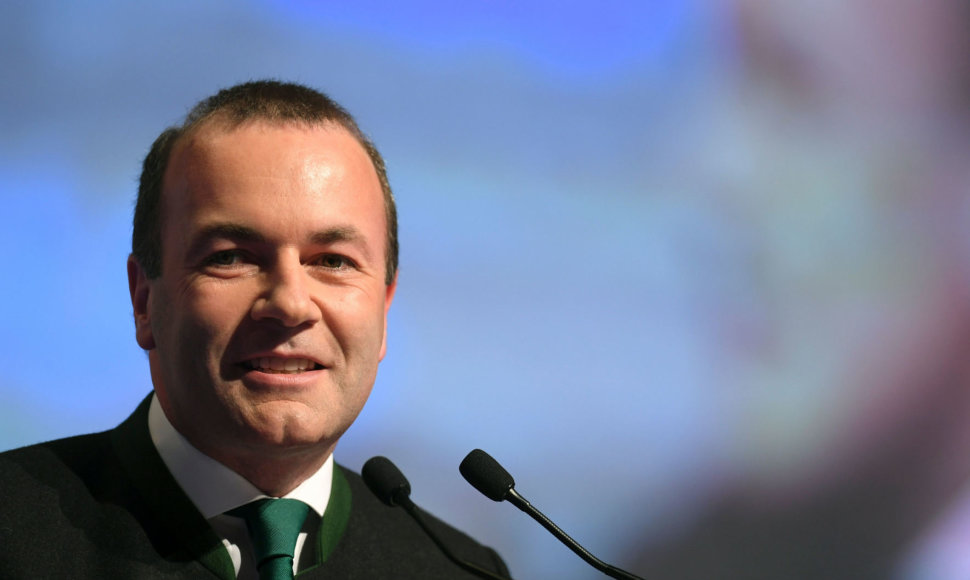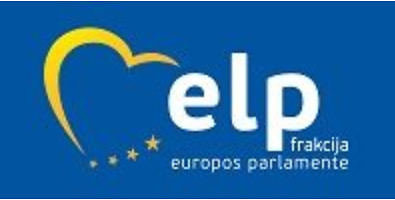As a consequence, we have to strengthen Europe’s role and its capacity to be a perfect crisis manager. The Corona pandemic showed us where we have to act: Europeans were understandably disappointed by the EU management. Each Member State closing its borders unilaterally, different travel requirements and quarantine days, and most importantly a slower vaccine roll-out than our Western closest partners. For too long Europe has been stuck in lengthy processes, leading to late decisions. The Conference on the future of Europe must have one top priority: Europe must be in a position to act quickly and truly deliver.
In some areas, Europe should give some competences back to the Member States, however, when common action is crucial, the EU needs greater executive powers for quicker implementation and faster action.
Look at Russia, Turkey, and China: one single country cannot block Europe from acting on a global stage and that is too often the case: in foreign policy, we must become more effective by giving up unanimity and making decisions through majority voting.
Similarly, Europe must step up its security and defence capacities and stand united. We need a clear roadmap to a European defence union within NATO with real European joint HQ, not to replace national armed forces, but to combine our forces to command respect in the world. In any event, our defence capacity must always be used for creating peace.
To keep citizens safe means also Europe must be ready to deal with the next pandemic and other terrible diseases. Indeed, Members States hold primary responsibility for health and medical care. However, pandemics will not stop at borders. We should create a European Marie Skłodowska Curie Institute for High-Level Research to bring together our best minds and to attract the best talents, so that we can step up the fight against cancer, but also Alzheimer’s and other infectious diseases like Covid-19. Europe can become the new health innovation lab.
Technology is in fact driving change and reshaping our world. That is why Europe must play a leading role in the digital revolution. To do this, the EU needs the appropriate competence to develop a true digital single market. We need a European "Digital Act" with binding investment targets and infrastructure standards with clear flagship projects, such as highly secure 5G network and expand the fibre network, investing in AI and machine learning to excel in precision medicine and fostering clean innovation for the future of mobility, with a new battery technology.
We are already frontrunners in environmental protection, as we set the ambitious goal of 55% emissions reduction by 2030 but, if we really intend to take a step further, then the European Union must be responsible for climate policy, in particular, to negotiate and agree on international climate agreements with third countries in accordance with ecological European standards.
But if we want to sustain all our ambitions, it is crucial for Europe to be ready to financially withstand the next crisis. To do this, the Economic and Monetary Union must be completed: the EU needs to focus on stability and macroeconomic performance. The next economic crisis should not lead to greater debts put on the shoulders of future generations. We cannot afford to lose the enthusiasm of our youth, we must ensure a prosperous future which they contribute to shaping.
In recent years, Europeans have had the growing impression that what happens in Brussels does not really take their lives into account and they do not know who to blame or reward for failures and successes. This is what happens when too many are responsible at the same time: important decisions are delayed and accountability is lost in the eyes of citizens. Europeans need stronger democratic leadership.
Ultimately, Europe will only be an efficient crisis manager if it is legitimised by the people to do so: We have to strengthen Europe’s democratic mandate. Before the next European elections, we must have clarity on who is accountable in Europe. In all national elections, citizens get to choose between candidates with their own programmes: that is why we should reinforce the lead candidate process, where voters will get to have the decisive say on who will be leading the European Commission. The biggest party forming the governing majority will get the right to nominate the President of the Commission, subject to the support of the European Parliament’s majority. Or we should be even bolder and establish the direct election of the President. Furthermore, the EU needs a face over which people have a greater say. “Sofagates” would not occur if Europe had finally one single president of the executive.
If Europe wants to survive the next crisis, it desperately needs change: a more democratic Europe with the necessary powers to deliver for the common interests of Europeans. That is why the Conference on the Future of Europe should not start the debate with any taboos or limitations, but with an open mind and ambition. Like our founding fathers before us, the EPP Group will continue being the driving force of greater European integration that delivers for citizens. Let’s stop crisis management, let’s start dreaming about our future instead.













